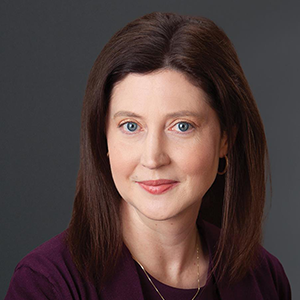Leading the band

Adrienne Doctor was a child when she heard the bright, clear call of a trumpet.
By the fourth grade, she was learning to play the brass instrument and soon began private lessons. While a student at Mt. Lebanon High School, she studied privately with the late Roger Sherman, a professional trumpeter in the Pittsburgh Symphony Orchestra.
Now a U.S. Army Sergeant First Class, Doctor is the first female drum major to lead the U.S. Army Band during full honor wreath laying ceremonies at the Tomb of the Unknown Soldier in Arlington National Cemetery.
In the past 10 years, she has played taps thousands of times. Often played at veterans’ funerals and memorial services, the melody was first heard in the U.S. as early as 1862. Union and Confederate soldiers fighting in America’s Civil War knew that the tune meant lights out.
By the 1890s, taps was heard regularly at veterans’ funerals.
To the 35-year-old trumpeter who grew up on Park Entrance Drive, playing in the U.S. Army band is an honor and a big responsibility.
“I play taps hundreds of times a year,” Doctor said. “It can be emotionally challenging at times. I try to feel that emotion. I see myself as grieving alongside the family.”
Doctor is well acquainted with grief because she lost her father, John Steven Doctor, in 2005, and her mother, Mary Alleman, in 2012. Both were Duquesne University professors.
Before playing, she reads the soldier’s obituary. “If I don’t do that, I feel myself emotionally distancing myself and I don’t want to do that,” she said.
As a member of the U.S. Army Herald Trumpets, the official fanfare ensemble for the president, Doctor has played for three presidential inaugurations.
Her appreciation for music began when her parents took her to Pittsburgh Symphony Orchestra concerts and Pittsburgh Opera performances. Then she realized she loved playing the trumpet.
“It was something I felt that I was good at,” she said. “I just really enjoyed playing with other people. It has always brought me energy. Being a musician is a great way to connect with other people.”
An early inspiration was Krista Wagner, a Mt. Lebanon music teacher. Doctor, who also played soccer, was Wagner’s sixth-grade student at Jefferson Middle School.
“She broke her right arm. So she just played trumpet with her left arm. She broke the first finger on her right hand. She switched over to playing the valves with the second. She was just the kid who never made an excuse,” Wagner said.
“When A.J. was in the room, she just had the kind of sound that leads the group — a beautiful, bright, clear, controlled trumpet sound. She leads by example and the sheer force of her hard work and dedication. You can’t help but want to be better when you’re around her.”
High school was a whirlwind of notes because Doctor played in a concert band, a jazz band, a marching band and an orchestra. Her senior classes included concert band and orchestra band.
Next came a seven-year stint at the University of Cincinnati, where she earned a bachelor’s degree in music education and a master’s in trumpet performance, finishing in 2013.
Her life changed in October of 2013 during an audition at Ft. Myer, Virginia, a U.S. Army post.
“That was my very first time on a military base,” Doctor recalled, adding that she arrived at 7:30 a.m. to find nearly 100 people ready to play behind a screen for a panel of judges.
For two days, musicians had to sight read, play standard orchestral repertoire and military band excerpts.
“It was a very intense two days. The commander of the U.S. Army Band has the final say on who gets hired,” Doctor said, adding that there were three openings in 2013.
Finally, Doctor and two other musicians were invited into a room and congratulated.
“It was just a very surreal moment,” said Doctor, who called Barret Newman, a fellow trumpet player she later married, to tell him the news.
She began basic training in May 2014. Since then, she has lived near Ft. Myer with Newman, who plays trumpet in the U.S. Army Old Guard Fife and Drum Corps. The couple have a 6-year-old daughter and 3-year-old son.
The first time she led the U.S. Army Band as a drum major at the Tomb of the Unknown Soldier in Arlington Cemetery was “a very special day.”
“I was definitely nervous. I had done a lot of preparation. I spent months learning how to use the mace,” she said. Drum majors use a mace, a heavily weighted ceremonial staff, to give commands during large ceremonies.
“I let my preparation take the lead. Whenever I feel nervous, I just remind myself that it’s not about me, it’s not about the band. It’s not about the people laying the wreath. It’s about honoring the unknown soldiers. It’s very humbling. You think about where you are and what you’re doing.”
Drum majors select some of the music played at funerals.
“If somebody spent their career as a chaplain, I might select the chaplain’s march,” Doctor said, referencing the song called Soldiers of God. If a soldier served in special forces, she may choose The Ballad of the Green Berets.
Soon after moving to Virginia in 2014, Doctor began volunteering at a hospice center. The volunteer coordinator knew she was a musician and asked her to play for people and their families.
“I got a request to play Happy Birthday for a gentleman on his 99th birthday. He retired as a major general in the army. I went to his house and played Happy Birthday and I played a few marches. He was lying in bed. I could see his feet bouncing around,” Doctor recalled.
Two years later, she was assigned to play taps at a funeral. “I looked up the name and it was that gentleman. I emailed the family and expressed my condolences.”
There are happy occasions, too. Her colleague, Jari Villanueva, a fellow trumpeter who spent 23 years with the United States Air Force Band, invited her to play at the Preakness Stakes, a thoroughbred horse race held annually on Armed Forces Day in Baltimore. She performed there in 2022 and 2023 and hopes to return.
“It was exciting to play for so many people,” Doctor said.
Earlier this year, on a trip to Europe with the U.S. Army Band, Doctor marked another first. She was the first woman to play a bugle call under the Menin Gate, a World War I memorial that honors British and Commonwealth troops who were killed at Ypres, Belgium, but whose bodies were never recovered.
Being a pioneer was important.
“I saw it as opening a door so other women in the army band can know that that’s something that they can do. Until you see someone doing it, it’s hard to imagine it. It’s a huge honor,” she said.
Early in her career, Doctor would occasionally hear a surprised spectator whisper, “It’s a girl!”
“I felt proud that I could be a role model and that I could show them that girls do this. It’s also disappointing that they’re surprised. But it’s becoming less common that I hear that.”
One of her colleagues, Sergeant First Class Alicia Eisenstadt, joined the U.S Army Band the same year Doctor arrived.
Besides playing music, women in the U.S. Army Band also guard the Tomb of the Unknown Soldier at Arlington National Cemetery and their ranks are increasing.
“There are now four female trumpet players in our band.”





